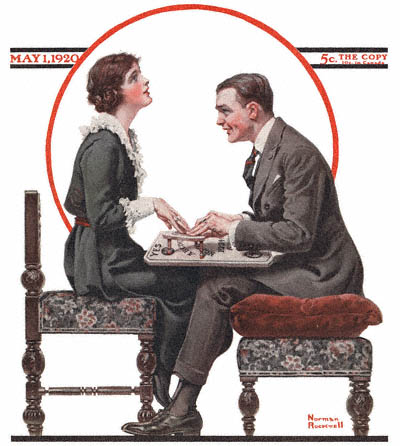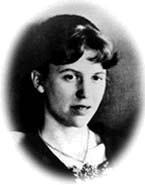
SAINT BOTOLPH'S REVIEW
____________________________
Poem of the Saeta
The Interrupted Concert
Ballad of the Water of the Sea
The Old Lizard I & II
Admetos Reflects on Orpheus
_______________________________
Poem of the Saeta
—after Lorca’s Poema de la Saeta
The dark archer of Seville—
Comes nearer Botolph's Review
She’s got Betty Grable eyes
And a Maria Montez smile.
She comes from Smith—
Madamoseille with a tight pussy
She bites Ted on the cheek
She’s doomed like Marilyn Monroe.
White Goddess angst she brings—
Cambridge men aren’t ready
She’s much too intelligent to go
Steady Eddie with Teddy.
—for Ted Hughes,
Howard Hughes: Selected
Translations
The Interrupted Concert
—after Lorca’s El Concierto Interrumpido
The frozen night pauses—
Cold moon in the sky
London covered in snow
It’s a dreary night.
The ovens protest silently—
Hiding in dark kitchens
And the wolves, poachers of
Shadows, are mute.
In the nearby tavern—
The drunks have gone home
Beneath the ancient stars
They stumble in the night.
Sylvia is sleeping now—
In a visionary poem by Yeats
And a single poplar sighs
It’s hundred years old song.
—for Sylvia Plath,
Howard Hughes: Selected
Translations
Ballad of the Water of the Sea
—after Lorca’s La Balada del Agua del Mar
The sea—
Sails far off
Pubes of sailors
Sky-blue eyes.
What do you see—
You wild girl on shore
Your breasts naked
Yearning for more?
What do you hide—
Young dark sailor boy
Deep in your blood
The surging sea.
Taste is bitter—
The savage waves
It’s where we’re born
Womb of tears.
Salty, salty—
The sea far off
Pubes of spume
My needy lips.
—for Daniel Weissbort,
Howard Hughes: Selected
Translations
The Old Lizard
—after Lorca’s El Lagarto Viejo
In the bleak staircase—
I’ve seen the great poets
Auden smiles like a crocodile
In contemplation of his
Faber & Faber royalties.
Eliot the devil’s abbot—
With his tasteful bearing
Toasts the other poets
Those with burned-out eyes
Watching each other yawn.
W.H. Auden the old Lizard—
Knows more than he says
Like a bored old professor
He’s seen it all & then some
He yearns for Ischia sun.
Spender giddy old queen—
Drunk on cheap champagne
Myopic thinker seeking the path
Uncertain quick breaths with
Crumbling face in the afternoon.
MacNeice full of charity—
But only for himself he weeps
A halfpenny for dying heaven
He’s been reading a book
About British dragons & frogs.
Hughes is dismayed—
Feigning his wolfish teeth
He’s a hunter among lambs
Wolf among village dolts
Snake in Ariel’s kitchen.
—for W.H. Auden,
Howard Hughes: Selected
Translations
The Old Lizard II
—after Lorca’s El Lagarto Viejo
Auden watches the sun—
Setting on the Acropolis
His eyes reflect achingly
Thinking about ephebic
Loss of love & goodlooks.
Searching for Chester—
Here in Athens once the
Glorious center of the gods
Korus smile on a boy’s face
He once knew years ago.
A day for a lay distained—
Whether New York or Rome
The setting sun was the same
Key West with sleeping pools
Serpent scales shed like tears.
Kallman has flown the coop—
He’s searching for Greek men
He admires Yannis like a god
Among the tall fresh reeds
Ravished worse than Leda.
—for Chester Kallman,
Howard Hughes: Selected
Translations
Admetos Reflects on Orpheus
—after Euripides
I find myself thinking about Orpheus—
Deep in the thick of tragic things
Thinking the impossible going down
Into the underworld, you young Yannis
With your groin & deep voice.
I rode your dark pubes—
On a thumping bed of asbestos
Wrapped in your voice so baritone blue
Down & deeper down, I followed you
I got you to come home with me.
Death let you go too easily—
You helplessly lost it all the way
A small error my backward glance
At a crucial moment I thought
You’d come back but you didn’t.
—for Yannis Boras,
Howard Hughes: Selected
Translations
____________________________
Poem of the Saeta
The Interrupted Concert
Ballad of the Water of the Sea
The Old Lizard I & II
Admetos Reflects on Orpheus
_______________________________
Poem of the Saeta
—after Lorca’s Poema de la Saeta
The dark archer of Seville—
Comes nearer Botolph's Review
She’s got Betty Grable eyes
And a Maria Montez smile.
She comes from Smith—
Madamoseille with a tight pussy
She bites Ted on the cheek
She’s doomed like Marilyn Monroe.
White Goddess angst she brings—
Cambridge men aren’t ready
She’s much too intelligent to go
Steady Eddie with Teddy.
—for Ted Hughes,
Howard Hughes: Selected
Translations
The Interrupted Concert
—after Lorca’s El Concierto Interrumpido
The frozen night pauses—
Cold moon in the sky
London covered in snow
It’s a dreary night.
The ovens protest silently—
Hiding in dark kitchens
And the wolves, poachers of
Shadows, are mute.
In the nearby tavern—
The drunks have gone home
Beneath the ancient stars
They stumble in the night.
Sylvia is sleeping now—
In a visionary poem by Yeats
And a single poplar sighs
It’s hundred years old song.
—for Sylvia Plath,
Howard Hughes: Selected
Translations
Ballad of the Water of the Sea
—after Lorca’s La Balada del Agua del Mar
The sea—
Sails far off
Pubes of sailors
Sky-blue eyes.
What do you see—
You wild girl on shore
Your breasts naked
Yearning for more?
What do you hide—
Young dark sailor boy
Deep in your blood
The surging sea.
Taste is bitter—
The savage waves
It’s where we’re born
Womb of tears.
Salty, salty—
The sea far off
Pubes of spume
My needy lips.
—for Daniel Weissbort,
Howard Hughes: Selected
Translations
The Old Lizard
—after Lorca’s El Lagarto Viejo
In the bleak staircase—
I’ve seen the great poets
Auden smiles like a crocodile
In contemplation of his
Faber & Faber royalties.
Eliot the devil’s abbot—
With his tasteful bearing
Toasts the other poets
Those with burned-out eyes
Watching each other yawn.
W.H. Auden the old Lizard—
Knows more than he says
Like a bored old professor
He’s seen it all & then some
He yearns for Ischia sun.
Spender giddy old queen—
Drunk on cheap champagne
Myopic thinker seeking the path
Uncertain quick breaths with
Crumbling face in the afternoon.
MacNeice full of charity—
But only for himself he weeps
A halfpenny for dying heaven
He’s been reading a book
About British dragons & frogs.
Hughes is dismayed—
Feigning his wolfish teeth
He’s a hunter among lambs
Wolf among village dolts
Snake in Ariel’s kitchen.
—for W.H. Auden,
Howard Hughes: Selected
Translations
The Old Lizard II
—after Lorca’s El Lagarto Viejo
Auden watches the sun—
Setting on the Acropolis
His eyes reflect achingly
Thinking about ephebic
Loss of love & goodlooks.
Searching for Chester—
Here in Athens once the
Glorious center of the gods
Korus smile on a boy’s face
He once knew years ago.
A day for a lay distained—
Whether New York or Rome
The setting sun was the same
Key West with sleeping pools
Serpent scales shed like tears.
Kallman has flown the coop—
He’s searching for Greek men
He admires Yannis like a god
Among the tall fresh reeds
Ravished worse than Leda.
—for Chester Kallman,
Howard Hughes: Selected
Translations
Admetos Reflects on Orpheus
—after Euripides
I find myself thinking about Orpheus—
Deep in the thick of tragic things
Thinking the impossible going down
Into the underworld, you young Yannis
With your groin & deep voice.
I rode your dark pubes—
On a thumping bed of asbestos
Wrapped in your voice so baritone blue
Down & deeper down, I followed you
I got you to come home with me.
Death let you go too easily—
You helplessly lost it all the way
A small error my backward glance
At a crucial moment I thought
You’d come back but you didn’t.
—for Yannis Boras,
Howard Hughes: Selected
Translations
















